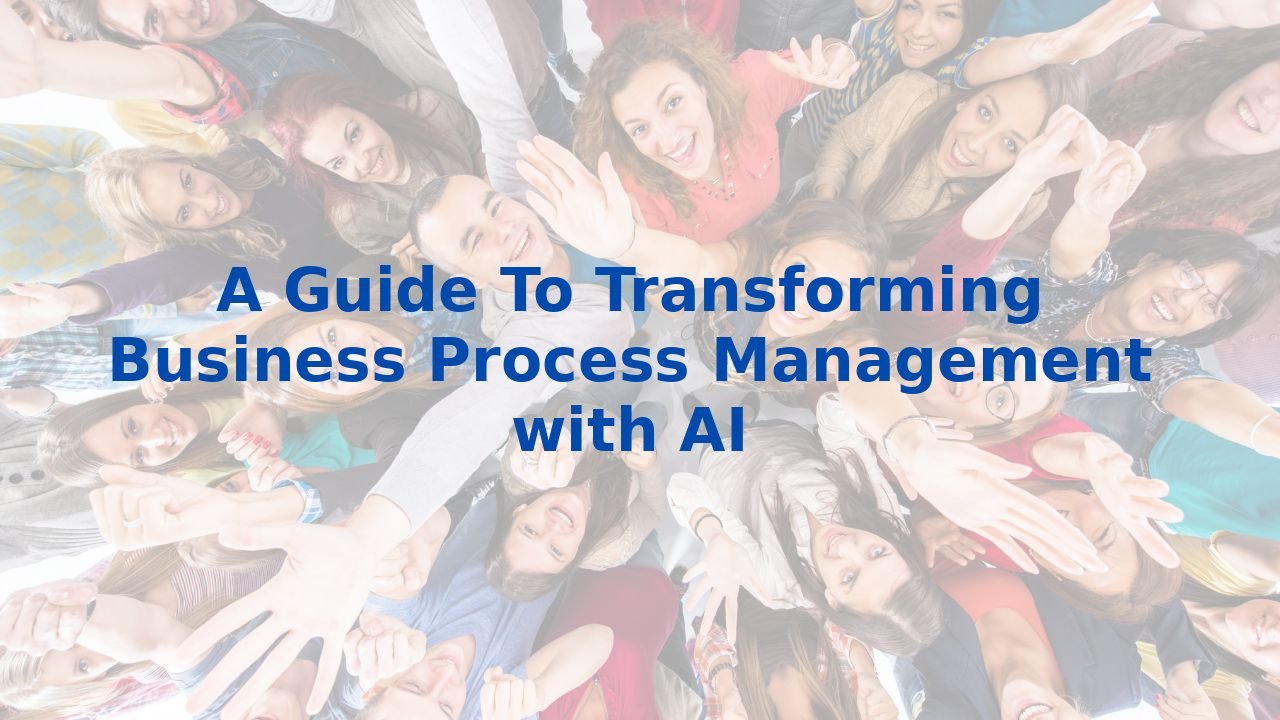A Guide To Transforming Business Process Management With AI

A Guide To Transforming Business Process Management With AI
How AI is Revolutionizing Business Process Management
In a world where change is the only constant, business process management (BPM) stands as a critical pillar enabling organizations to improve their operations. The incorporation of artificial intelligence (AI) into BPM offers a transformative force that can elevate these processes to new heights. AI is not merely a tool—it's a game-changer.
The Impact of AI on BPM
Artificial intelligence's rapid evolution empowers companies to harness sophisticated process discovery and automation solutions. This shift is largely driven by the deluge of data available from various channels like enterprise systems, sensors, and social media, making AI deployments more effective and widespread.
Enhancing Front-Office Processes
When we look at front-office processes, the impact of AI is profoundly felt in areas like sales, customer satisfaction, and employee engagement. Through the automation of routine tasks, AI not only liberates call agents to focus on complex inquiries but also drives customer satisfaction by decreasing response times. Imagine a world where your employees can dedicate their unique skills and insights to resolve high-value customer issues instead of getting bogged down in repetitive inquiries.
Business Process Mapping and Analysis
Using machine learning and AI models to map out business processes is an emerging norm. AI can pinpoint inefficiencies and recommend actionable improvements, helping businesses streamline their workflows. For instance, consider a production line where AI continuously monitors operations, flags potential slowdowns, and suggests corrective actions. This proactive approach not only increases productivity but also enhances the overall quality of output.
Chatbots, Virtual Assistants, and NLP
The implementation of chatbots and virtual assistants powered by AI and natural language processing (NLP) is reshaping BPM interactions. These technologies intuitively handle inquiries and analyze vast amounts of unstructured data, such as customer feedback and social media interactions. This capability not only leads to improved customer experiences but also enriches employee engagement as they have the right tools to be more effective in their roles.
Benefits of AI in BPM
The advantages brought by AI into BPM are extensive:
- Automation of Routine Tasks: Freed from repetitive tasks, employees can now channel their energies toward more strategic initiatives.
- Improved Decision Making: Predictive analytics provides invaluable insights, enabling higher-quality decisions based on data rather than intuition.
- Enhanced Customer Service: AI-driven assistants manage inquiries effectively, reducing wait times and enhancing satisfaction.
- Process Optimization: Uncover inefficiencies and bottlenecks using AI, allowing for continuous process improvements.
Practical Applications of AI in BPM
Here are a few practical applications that demonstrate how AI can be integrated into BPM:
- Automating Document Processing: AI-driven intelligent document processing transforms documents into structured data without manual input, increasing productivity and accuracy.
- Predictive Analytics: AI digests large data sets to uncover trends and forecast outcomes, empowering businesses to navigate challenges proactively.
- Real-Time Monitoring: AI-enabled process mining allows organizations to observe workflows in real-time, identifying deviations and enabling prompt resolutions.
The Role of Training in AI Adoption
A remarkable tool is only as powerful as those who wield it. For organizations to fully exploit AI’s potential within BPM, employee training is absolutely essential. Effective training programs should equip employees with:
- Understanding AI Capabilities: Knowledge about what AI can and cannot do is crucial for realistic and effective use.
- Integration with Existing Systems: Employees must know how to incorporate AI tools seamlessly into current workflows.
- Data Analysis Skills: Building competencies in data interpretation allows employees to derive actionable insights from AI-generated information.
- Adaptability: Fostering an adaptable workplace culture ensures that employees can pivot and thrive amid transformations.
By investing in training and embracing AI technologies in BPM, organizations unlock tremendous avenues for efficiency, innovation, and competitiveness in an ever-evolving marketplace.
Conclusion
AI's integration into business process management is proving to be transformative for organizations across various sectors. It not only streamlines operations but also improves decision-making capabilities and customer satisfaction. By empowering employees with the right skills, businesses position themselves to thrive in a future where agility, efficiency, and innovation are paramount.